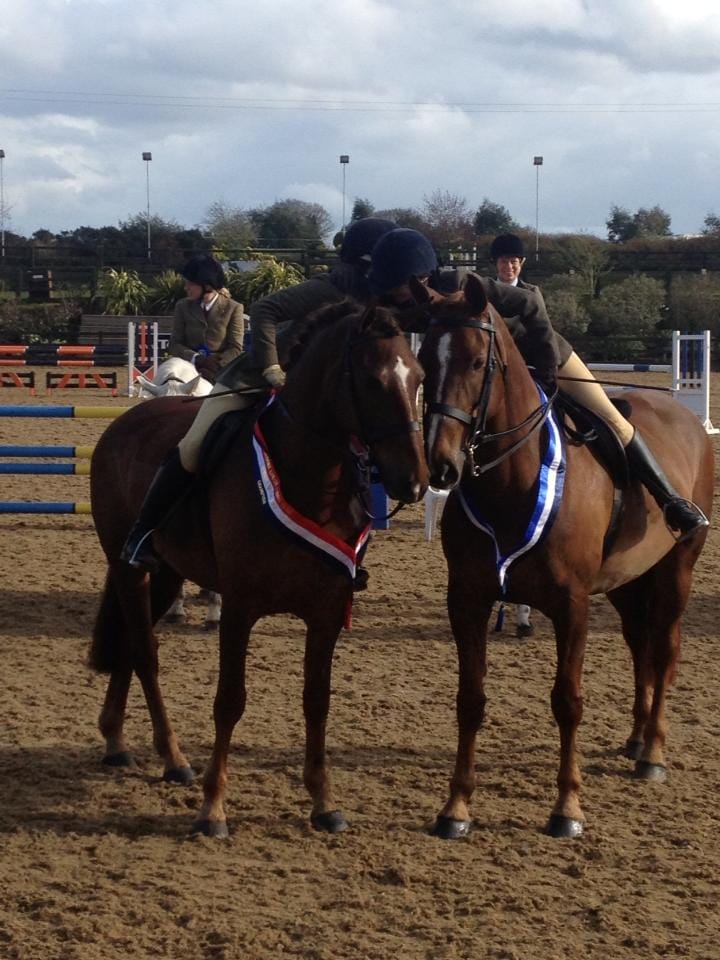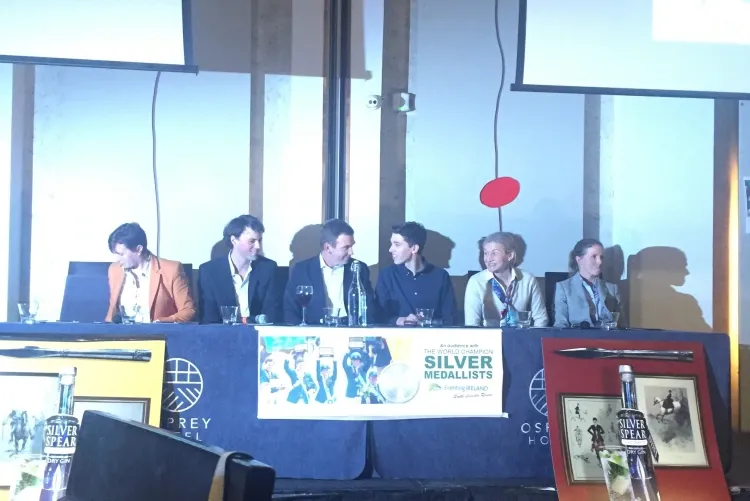Rivals with Respect from Edition 1

As women we hear so much about inequality and about the importance of female empowerment.
After decades of male domination in everything from the workplace to the media women are finally taking ownership of their own narrative.
Some strains of systemic gender bias still fester. For example, when it comes to competition it is often suggested that women are softer, are more vulnerable to emotions, less able to focus on sport and that somehow we should aim to cap our aggression and our competitive nature.
However, one point I have always argued is that you can strip away all the misogyny, the decades of unhealthy portrayals of women from the age gaps in movies to the magazines circling cellulite, the boys clubs and the gender pay gaps – BUT - empowerment only works when women are nicer to each other.
From birth we women are subtly conditioned to compete against each other and sadly, usually based on the most shallow of values – our looks, our status symbols, our personal life and still, in this day and age, on our size. We are pitted against each other and it has a subtle but negative effect on how we interact with each other– a judgy comment here, a raised eyebrowed question there, a quick judgement based on the external appearance or a suggestion that bringing someone else down will raise you up. We are often our own worst enemy.
I believe it is up to us as empowered women to break the cycle. We have the opportunity as riders, as professionals, as parents, as mentors and as coaches, to demonstrate how to compete with respect whether that is in sport or in business.
As equestrian women, we compete in one of the only sports in the world that allows all genders to do so on a level playing field.

Let that sink in.
Equestrianism is one of only two sports not to segregate competitors from the most basic level to the highest international circuit.
I competed a few years ago at a showing class. The show times had been wildly incorrectly estimated and the side saddle class, which had over 20 of us trying to qualify for the Dublin Horseshow started at 7.30pm. It was unseasonably hot and the flies were eating both us and the horses as we stood wilting waiting for the judge to ride our mounts. Anyone with sense had gone home, my groom. As it came time to resaddle our horses, I had no one to flick a brush over my horse let alone to hold her and prevent her from eating grass as I attempted to resaddle. Then, another competitor sent her groom down the line to me. I was speechless.This lady sponged and resaddled my horse, gave me a leg up and wished me luck. I will never forget that day because it taught me the importance and the meaning of competing with respect.
Since that day I have always aimed to replicate the same level of respect shown to me that day with others I compete with. If you need a test called, no problem. If you forgot and need to borrow a set of numbers, a whip or a copy of a test, no problem. While winning is the goal when competing, there is no need to win by default or through other competitors' struggles.
I believe that we can compete with passion and determination both in sport and in business, while still showing respect for and empowering our fellow competitors. It may be a cliché but as a group we are stronger than when we stand alone.
As an equestrian coach I have been lucky enough to work for a few years with a group of now teenaged girls. The ethos of our training from day one has been respect – respect for their parents, respect for each other and respect for the team that we make up. Quite simply, everyone counts or nobody counts. I have often been overcome with pride to see them compete – not because of their results but because of their ability to support each other through the good days and the bad. Hearing them cheering each other on regardless of the outcome is inspiring. At one competition last year, the earlier riders brought horses home and came back – I asked why and they simply told me that they came back to support the others.
Last weekend, our riding club qualified for a national championship which was rather unexpected and yet a wonderful surprise. When my husband asked me how the day went, I found it wasn’t the results I was describing to him but instead the overwhelming feeling of teamwork and support that rippled through our club all day. Each rider rode their test with all eyes on them, willing them success. It was a wonderful feeling. To finish a test to cheers and clapping from teammates was as sweet as any win.
On the business side of things, I attended some wonderful clinics recently held at another local yard. On paper we are competitors but in reality we respect and recommend each other. I believe that in business the mistake is the belief that it is best to compete in isolation whereas in reality we are stronger as a community – if we create a cycle of recommending each other based on each businesses and persons key skills and strengths, everyone benefits. The recent Equestrian Business Network Awards were a wonderful example of this – bringing equestrians together as a community.
As riders we naturally look up to the higher levels and we are lucky to have some incredible female riders leading the way. I bumped (literally) into a lady who competed for Ireland internationally in the warm up of the national championships last year. Later that night, fuelled by a few glasses of confidence juice from the horse box bar (oh yes this was a championship to remember) I introduced myself and my shock at being in a warm up with someone at her level. She smiled and told me – now you know how I felt in the international warmup when I looked up and saw Isabel Werth! I am fortunate to know another local international rider. While she is abroad skipping across the arena in tempi changes at Grand Prix, she will be the first to message me to praise a tiny step of progress in my video. These women are not just leading the way, they are taking us with them and that is a skill and an attitude that I believe is just as important and valuable as their ability to win in the ring.
In essence, I believe that the key to empowering women in our equestrian industry boils down to one simple thing – developing the ability to compete in business and in sport with a respect for each other and a willingness to build each other up.

